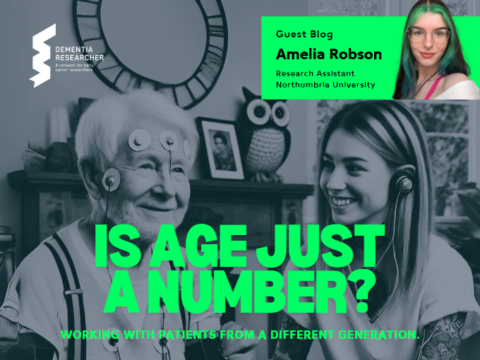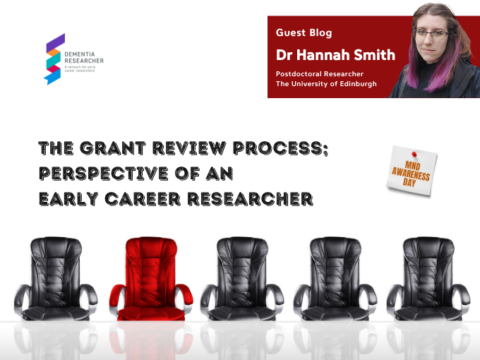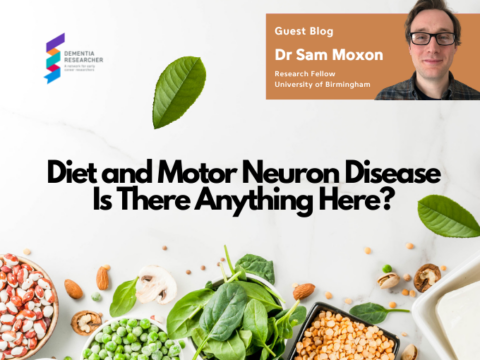I have always felt pressure in my academic career to run fast and run far. I don’t know if this comes from being a first generation academic, a female academic, a young academic or just an academic. But throughout my short career the feeling has always been there. If I don’t put in maximal effort, if I don’t stay driven, if I don’t strive towards perfection, then the lumbering monster of failure chasing after me will surely gain ground. My whole life of striving and reaching and growing and learning, I have been waiting for someone to tap me on the shoulder and say: “That’s far enough”. So if I don’t run fast and I don’t run far, if I let chinks in the armour show, then the monster will catch me and prove what I have feared since I started running many years ago – that I don’t deserve to be here.
I feel an immense sense of privilege to be where I am. I love being an academic. I love that I get to introduce myself as a neuroscientist. I love that my whole job is solving the kind of problems that are meaningful to me. But with that sense of privilege comes a sense of pressure. When I started my journey as an undergraduate at the University of Oxford, one of the first things I was told is that the master of our college knew the names of the students who didn’t get our place. Since then I’ve always imagined what they looked like. They were branching timelines with impossibly amazing endings. Tenure by twenty, a cure for dementia by the thirty. Better things than I was capable of. To prove that I deserved to be here I had to be the best of them. I had to fight every day to prove I was worth the chance someone took on me.
Every time the competition grew tougher, the fight got more intense. I still don’t know why I was chosen to do a PhD. There are so many incredibly talented people who I know that didn’t get that opportunity. So to make it fair that I was the one, I had to be perfect.
Perfectionism is something we talk a lot about in academia. The refusal to accept anything less than our optimal is something a lot of academics struggle with. We know rationally that nothing can ever be perfect, but it often doesn’t stop us trying. What is discussed less frequently is why we feel the need to be perfect when we know it’s irrational. In my case, and I dare say for others, it is driven by the need to prove that I deserve the privileged position I’ve been given. Every spelling mistake shows a lack of care taken in my work. Every miscommunication demonstrates a lack of maturity and empathy. Every analysis error shows my technical skills are a carefully crafted façade of aesthetic graphs and well-commented drivel. Perfectionism is my bread and butter because every mistake creates a crack in the wall from which grows flagrant proof that I’m a fraud.
I never realised until a session with a life coach just how effective saying your irrational thoughts out loud can be, and voicing the reasons behind my perfectionism for the first time made them suddenly feel very silly. I started to talk about that college master and his parallel timelines of students who didn’t get my place. I talked about the fact that if I didn’t run as fast and as far as I could that I didn’t deserve to be here because someone else could have gone further. I talked about the idea that if I didn’t use every ounce of effort to get as close to perfection as I could, then I didn’t deserve the privilege.
And at the end of all that, the life coach smiled in that warm way people do when they’ve heard the same story a hundred times from a hundred different people, and we began to dismantle it all. We did an exercise to place those beliefs in the museum where all old beliefs are kept that we look on fondly now we know they’re not true. In my case, it’s actually pinned in a case between the knowledge that grown-ups are always right and the fervent belief that Santa Clause is real. I started to try and be more forgiving of my mistakes. I started realising that there was no imaginary person in a parallel timeline who I needed to beat. And my definition of perfect started to change.
I have always felt pressure in my academic career to run fast and run far. But there is a very different feeling between running away from something, and running towards something. I no longer run with the haggard determination of someone who knows there is a lumbering monster right behind them, but rather with the free abandon of a child making a play for the swing set. Which means I’m allowed to get distracted by the slides, and stop for a break to build a sandcastle. I’m even allowed to fall over. Because when I do there won’t be a creature coming to remind me that my worth is dependent on my ability to be perfect. Instead there will be time to sit and process, before I get up and start running again. Making mistakes is the most human thing we can do. Beating ourselves up for those mistakes is the second. For me the moment I realised that I actually do deserve to be here, that I’m not wasting my privileged position by daring to relax and enjoy it, was the moment I started to change the strict goalposts I’d applied to myself.
I don’t think there is an inherent problem in striving for perfection. But when we strive out of an obligation to prove our worth in this competitive academic environment, then we create an atmosphere in which failures become personal, and constant drive becomes non-negotiable. We stop taking breaks, we stop being kind to ourselves, and we stop enjoying the position we’ve worked so hard to be in. When we instead accept the simple fact that we do deserve to be here; when we strive out of excitement to be a scientist, because we love what we do, our definition of perfect becomes less cut-throat, and we’re able to find a better balance.
So, by all means strive for perfection, but I would encourage you to ask yourself this: why do you throw everything you have into making your work as good as it can be? Is it because you need to earn your place, or is it because this is the place you’re overjoyed to be. Because, who knows, by bringing the joy back into your work, you might even run faster and farther than you ever did before.

Rebecca Williams
Author
Rebecca Williams is a PhD student at the University of Cambridge. Though originally from ‘up North’ in a small town called Leigh, she did her undergraduate and masters at the University of Oxford before defecting to Cambridge for her doctorate researching Frontotemporal dementia and Apathy. She now spends her days collecting data from wonderful volunteers, and coding. Outside work, she plays board games, and is very crafty.

 Print This Post
Print This Post





